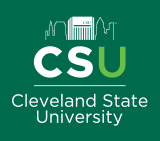Online Master of Science in Nursing
Family Nurse Practitioner
- Two Year, Full-Time Program
- 100% Online Coursework – One Campus Residency
- Clinical Placement Support
PROVIDE CARE ACROSS YOUR PATIENTS’ LIFESPAN
With a Master of Science in Nursing – Family Nurse Practitioner degree (MSN-FNP) from Cleveland State University (CSU), you’ll be prepared as an advanced practice registered nurse specializing in primary care for patients of all ages. FNPs deliver care in community-based care systems, private and group interdisciplinary practice settings. Clinical competencies include assessing and diagnosing conditions through the use of tests and procedures, and ultimately developing an evidence-based plan of treatment that may include pharmacologic and non-pharmacologic interventions.
-
With more than 50 years delivering quality nursing education, Cleveland State University’s online Master of Science in Nursing – Family Nurse Practitioner degree can prepare you for certification as an FNP in as few as 2 years. We combine higher education and hands-on real-world experiences so you can develop advanced practice skills to provide needed care across your patients’ lifespan. Coursework includes focused study on such topics as health care policy, theoretical foundations for population health, advanced pharmacology, advanced health assessment and more.
- 100% online coursework
- One on-site residency on our dynamic campus
- 780 clinical hours near your community
- Clinical placement services are provided as part of the program
- You can complete this program full-time in two years
- Taught by dedicated, experienced professors, many of whom are tenure-track and active in initiatives and research
- Strong community-focused program
- Gain the skills and hands-on experience needed to take the next step in your career as you prepare for certification
-
-
-
-
With more than 50 years delivering quality nursing education, Cleveland State University’s online Master of Science in Nursing – Family Nurse Practitioner degree can prepare you for certification as an FNP in as few as 2 years. We combine higher education and hands-on real-world experiences so you can develop advanced practice skills to provide needed care across your patients’ lifespan. Coursework includes focused study on such topics as health care policy, theoretical foundations for population health, advanced pharmacology, advanced health assessment and more.
- 100% online coursework
- One on-site residency on our dynamic campus
- 780 clinical hours near your community
- Clinical placement services are provided as part of the program
- You can complete this program full-time in two years
- Taught by dedicated, experienced professors, many of whom are tenure-track and active in initiatives and research
- Strong community-focused program
- Gain the skills and hands-on experience needed to take the next step in your career as you prepare for certification
To become a Family Nurse Practitioner, you must first earn a bachelor’s degree in nursing, and pass the NCLEX-RN to become a licensed RN. The next step is to earn your MSN with a concentration in family nurse practitioner course and clinical experience work. Upon degree completion, the graduate must take and successfully pass a national certification exam to become a certified Family Nurse Practitioner.
This six-semester program requires 47 credits of online coursework, 780 clinical hours and one on-site residency at our dynamic campus. It can be completed full-time in two years.
The baccalaureate degree program in nursing, master’s degree program in nursing and Doctor of Nursing Practice program at Cleveland State University is accredited by the Commission on Collegiate Nursing Education (http://www.ccneaccreditation.org). Cleveland State University is regionally accredited by the Higher Learning Commission (HLC).
The online MSN-FNP costs $636.70* per credit hour for in-state students ($29,924.90 total* + fees) and $637.70* for out-of-state students ($29,971.90 total* + fees). Financial aid may be available to our online students.
*Tuition rates as of 8/28/2025. Rates are subject to change. Visit csuohio.edu/bursar/tuition-and-fees for current rates.
You’ll work directly with your dedicated clinical placement team who will help identify a suitable clinical placement site within a reasonable distance from your home and coordinate the preceptor details. However, as a student you will be responsible for key parts of the placement process.
The total annual median income for full-time Family Nurse Practitioners is $115,000.
Source: https://www.aanp.org/news-feed/are-you-considering-a-career-as-a-family-nurse-practitioner
Family Nurse Practitioners practice in diverse environments including private practice, community health centers, health care systems and universities.
Yes. You’ll learn alongside faculty who conduct cutting-edge research across a range of areas. Our faculty members are dedicated, caring and experienced professionals who are committed to excellence in nursing education, research and service.
Compare CSU
Cleveland State University offers competitive tuition rates and includes clinical placement support as a part of your program. You will work closely with your placement team throughout your program in order to complete program requirements, meet deadlines and complete all items on your nursing clinicals checklist.

The goal of this course is to review the theoretical foundations of the nursing profession and acquaint the graduate nursing student with the concept of population health. Population health, with the concomitant shift in focus from disease management to health promotion and prevention, is a perspective of health care leadership and an evolution from traditional nursing roles as experienced in the last half of the twentieth century. Students will be introduced to the competencies for population health and the scope of a population health practice. (3 credits)
This course provides the opportunity for students to apply theoretical knowledge and psychomotor skills in learning to perform procedures commonly performed in the family practice setting. Emphasis is on the provision of safe and effective advanced practice nursing care to clients in a variety of settings. This is an on-campus residency course and includes hands-on applications and lab work. (1 credit)
This course develops the foundation for managing the care of the adult client with acute and chronic illness in primary care and community settings. Included is health promotion, disease prevention, diagnosis and management of common chronic and acute conditions. Issues of gender, race, and genetics are addressed, with knowledge of pathophysiology and pharmacology applied in the holistic management of care. (3 credits)
This course focuses on the health of women in the reproductive years, providing knowledge needed for health promotion, illness prevention, diagnosis and management care of women from diverse populations in primary care and community settings. Issues of age, gender, ethnicity and sexuality will be addressed as strategies are explored for the care of well and sick female clients. (3 credits)
Learn More
We’re here for you and ready to help you with enrollment and answer your questions about the program, including tuition, admission requirements, curriculum details and more.
CLINICAL PLACEMENT SERVICES
Our clinical placement services team will work with you to find clinical placement opportunities in your area. However, as a student you will be responsible for key parts of the placement process. These FAQs can help you better understand the clinical placement services provided as part of your FNP nursing education experience at CSU.
01
How does the clinical placement process work?
You’ll work directly with your dedicated clinical placement team who will help identify a suitable clinical placement site within a reasonable distance from your home and coordinate the preceptor details.
02
When do I start clinical placements?
In the MSN-FNP program, you will begin your clinicals in the third semester.
03
How many hours per week will I be participating in clinicals?
Depending on the semester, you will complete between 12-20 hours per week on average, which comes out to one to three days per week.
04
Am I able to provide referrals? What about doing my clinical with my employer?
Students are encouraged to submit referrals for vetting. You may also have the option to do your clinical at your current employer after submitting a request to see if your position qualifies.
Hear From Our Students
FAMILY NURSE PRACTITIONER PROGRAM OUTCOMES
Our online Master of Science in Nursing – Family Nurse Practitioner (MSN-FNP) prepares our students by teaching the techniques and skills to become proficient in providing primary and specialty care to patients of all ages in a variety of settings. MSN responsibilities include:
-
Integrate scientific findings from nursing, biopsychosocial fields, genetics, public health, quality improvement and organizational sciences for the continual improvement of nursing care across diverse settings.
-
Recognize that ethical and critical decision-making is essential to designing and implementing organizational and systems leadership that promotes high-quality nursing education and safe patient care.
-
Use methods, tools, performance measures, and standards related to quality, and be prepared to apply quality principles within an organization.
-
Apply research outcomes within the practice setting to resolve practice problems and, by doing so, work as a change agent by disseminating results from research and practice improvement initiatives.
-
Use technologies to deliver and enhance care and nursing education.
-
Intervene at the system level through the policy development process and employ advocacy strategies to influence health and health care.
-
Act as a member and leader of inter-professional teams by communicating, collaborating, and consulting with other health professionals to manage and coordinate care and nursing education.
-
Apply and integrate broad, organizational, client-centered and culturally appropriate concepts in planning, delivering, managing, and evaluating evidence-based clinical prevention and population care and services to individuals, families, and aggregates/identified populations.
-
Recognize that nursing practice is broadly defined as any form of nursing intervention that influences healthcare outcomes for individuals, populations or systems; possess and integrate an advanced understanding of nursing and relevant sciences into direct and indirect practice components.
NURSE PRACTITIONERS BY THE NUMBERS
*Zippia.com
















